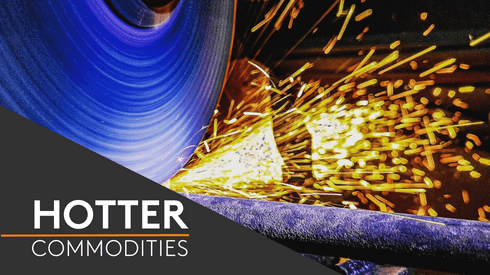Our Terms & Conditions | Our Privacy Policy
Freeport shifts away from marketing copper concentrates as new smelter ramps up, CEO says: LME Week
The goal is to get the plant fully ramped up by year-end, according to Quirk.
“For years, we were the price setter for copper treatment charges (TCs), being the largest concentrate producer. But now we have the new smelter in Gresik, we don’t have a need to place concentrate like we did,” Quirk said.
“It’s a major change in the market, Freeport switching from concentrate marketer to a cathode marketer,” she added.
Get notified when Andrea Hotter publishes new articles and interviews on the natural resources sector. Receive the latest stories straight to your inbox.
The timing of the new smelter comes as copper concentrate supplies remain tight, which is a situation that has been exacerbated by the ongoing closure of the Cobre Panama project.
“Our smelter has been in progress for many years, so it’s not a surprise to the market. It just happens to coincide with some other supply issues at the same time,” Quirk said.
Fastmarkets’ latest assessment for its copper concentrate TC index, cif Asia Pacific, was at $2 per tonne on Friday September 27, up from $(1.90) per tonne a week earlier.
TCs are the fees that mining companies pay to smelters to have their semi-processed ore, or concentrate, turned into finished metal. Typically, tighter spot supply leads to a drop in spot TCs.
The new smelter is located in Gresik in the East Java province of Indonesia, and has the capacity to process around 1.7 million tonnes of copper concentrate annually.
“It’s a little bit of a white-knuckle time when you’re starting up something like this. It’s a very complicated operation, but our team was well prepared for it and we’ve got people on site that have expertise in smelting. We’re fortunate at Freeport that this isn’t our first smelter,” Quirk said.
But timing issues could emerge, given that the company is addressing some teething problems throughout the start-up process, according to Quirk.
“We don’t think there’s any material change, but we’re going to have some timing issues that we’ll have to work through. However, nothing out of the order,” Quirk said.
Freeport is also undergoing the application process to apply for an extension of its special mining license in Indonesia, which currently expires in 2041.
The new regulatory environment in Indonesia allows applications for a life of mine extension when a company is fully integrated and has at least 51% Indonesian ownership, criteria Freeport meets, Quirk said.
A further requirement is for the sale of an additional 10% of its stake to the state-owned company, which Quirk said Freeport is in the process of negotiating.
“We’ve been talking with the government about our commitment to continue our positive momentum and continue to invest, so that the benefits of our operations can continue well into the future,” she added.
Freeport’s copper sales in the second quarter of 2024 came in at 422,294 tonnes. The company expects sales of 1.85 million tonnes of copper this year.
Mergers and acquisitions
Mergers and acquisitions remain a discussion within the copper industry, which has recently seen a flurry of activity amid a growing recognition of the red metal’s role in the electrification and infrastructure required for the energy transition, according to Quirk.
“Everybody is looking at the fact that copper is a commodity that is going to have continued demand growth and limitations on supply development. So when companies are looking at growth and they want exposure to copper, it’s hard to do it organically,” she said.
“I think M&A will continue to be topical, but for a variety of reasons, there are not a lot of sellers, or any sellers of anything of quality. So while M&A might be talked about a lot, it may not be very actionable,” she added.
Freeport is focusing on creating long term value for its shareholders through organic opportunities but is also keeping its “ears and eyes open for what might be out there”, according to Quirk.
“You have to be prepared to act and be opportunistic when the time comes, but you can’t base your strategy on it, because you need two parties to tango, and it’s not totally in your control, as we’ve seen,” Quirk told Fastmarkets.
“We’re in the commodity we want to be in. We’ve got the right assets in that commodity and we’ve got the opportunity to grow. So we’ve got a clearly defined strategy, and execution is key to delivering it,” she added.
In Hotter Commodities, special correspondent Andrea Hotter covers some of the biggest stories impacting the natural resources sector. Sign up today to receive Andrea’s content as it is published.
Images are for reference only.Images and contents gathered automatic from google or 3rd party sources.All rights on the images and contents are with their legal original owners.



Comments are closed.